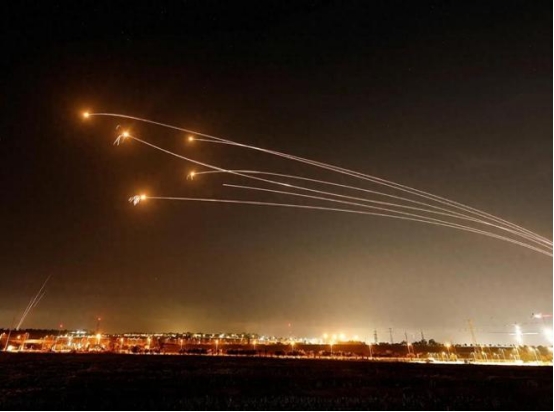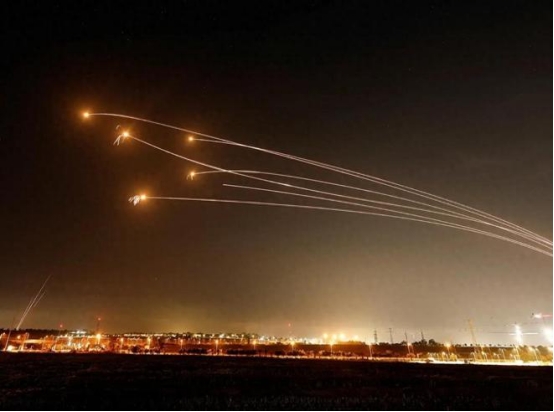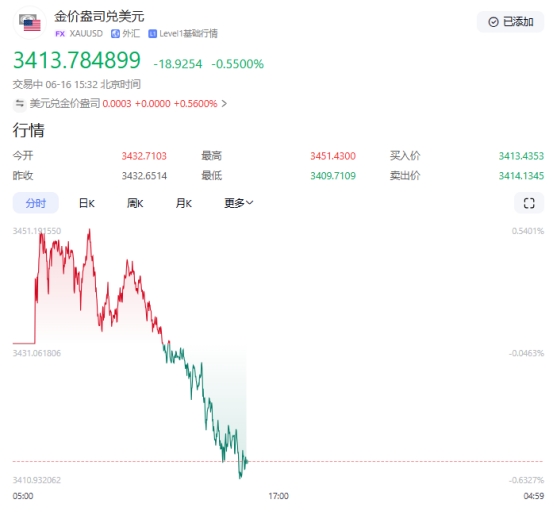Lightning raid! Israeli army seizes air supremacy in western Iran within 48 hours, and demand for gold as a safe haven surges
- 2025年6月17日
- Posted by: Macro Global Markets
- Category: News

Lightning raid! Israeli army seized air supremacy in western Iran within 48 hours, and demand for gold as a safe haven surged

The Israeli army had previously destroyed more than 40 key targets in Iran, including the Natanz nuclear facility, missile factories and the Revolutionary Guard headquarters in Tehran. Iran's air defense system was paralyzed in the first round of attacks, and Israeli fighter jets then penetrated deep into Iran's hinterland and continued to operate over Tehran for 2.5 hours, completely controlling the air supremacy from western Iran to the capital.
As of June 16, the Israeli army had carried out air strikes for more than 50 hours, hitting more than 150 targets in total, including Isfahan Nuclear Power Plant, Karaj Nuclear Science Center and other strategic facilities. Although Iran launched nearly 200 ballistic missiles and drones in retaliation, most of them were intercepted by Israel's "Iron Dome" system, causing only limited damage. Israeli Prime Minister Netanyahu said in a statement on the 15th that the operation will continue for several weeks until the Iranian nuclear threat is completely eliminated.
II. Geopolitical Pattern: US-Israel Coordination and Regional Chain Reaction
This action is a continuation of Israel's "preemptive" war against Iran's nuclear program. Since October 2024, when Iran launched 180 missiles at Israel, the conflict between the two sides has continued to escalate. Israel's action has been "tacitly approved" by the United States. The US military not only assisted in intercepting Iranian missiles, but also redeployed military resources in the Middle East to support the Israeli army. White House officials revealed that the Trump administration "knew and secretly supported" Israel's long-term strike plan, but if Iran attacks US targets, it will lead to "unprecedented retaliation."
The regional response was divided: Saudi Arabia, the United Arab Emirates and other Gulf countries remained silent, while Russia condemned Israel's "military aggression" and called for resolving the dispute through dialogue. Iran's Supreme Leader Khamenei vowed to "completely destroy the Israeli regime" and threatened to block the Strait of Hormuz, which carries 40% of the world's oil transportation. If blocked, it would cause severe shocks in the energy market.
3. Gold market: Risk aversion and policy game resonate
Driven by geopolitical risks, gold prices soared to $3,450.98 an ounce in the Asian session on June 16, a record high and up more than 3.4% from the low on June 12.

Geopolitical risk aversion dominates short-term volatility: Israel's precise strikes on Iran's nuclear facilities have triggered market concerns about the escalation of the conflict. Historical data shows that when the Israeli-Iranian conflict escalated in April 2024, the price of gold jumped 1% in a single day to $2,370; in this incident, the gold safe-haven premium was once again highlighted, and short-term funds poured in at an accelerated pace.
Fed policy expectations diverge: Although the US CPI in May was 2.4% year-on-year, in line with expectations, the tariff transmission effect may delay the decline in inflation, and the market's expectation of a rate cut by the Fed in September has risen to 76.3%. If the June 19 interest rate meeting sends a dovish signal, gold is expected to break through the $3,472 resistance level; on the contrary, if the Fed strengthens its "hawkish" stance, gold prices may fall back to the $3,400 support level.
Central bank gold purchases and de-dollarization support: In the first quarter of 2025, global central banks increased their gold holdings by 244 tons. China's gold reserves increased to 73.83 million ounces for seven consecutive months. Gold has surpassed the euro to become the world's second largest reserve asset. This structural demand provides a long-term bottom for gold prices.
IV. Institutional Views
UBS predicts that if the situation in the Middle East continues to deteriorate, the target price of gold this year may reach US$3,500, with geopolitical risks and expectations of interest rate cuts forming a "double driving force".
Everbright Futures pointed out that if Iran blocks the Strait of Hormuz, oil prices may soar to US$250 per barrel, and the anti-inflation value of gold will be strengthened simultaneously.
Israel's lightning strike on Iran has rewritten the military balance in the Middle East. Investors need to be alert to the risk of a pullback after the situation eases, and pay close attention to the Federal Reserve's interest rate meeting and Iran's countermeasures. Against the backdrop of "de-dollarization" and global economic slowdown, the strategic allocation value of gold has become increasingly prominent.
